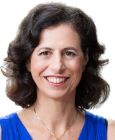Coronavirus Disease 2019
Everyone's a COVID-19 Expert: Separating Fact from Fiction
When memes rule, determining fact from fiction is a challenge.
Posted April 22, 2020 Reviewed by Gary Drevitch
We are in crisis, certainly from a health perspective but also economically and politically.
Fear, anxiety, depression, feelings of uncertainty, and groundlessness are all normal responses to a crisis. During this time, people crave leadership and guidance that is sound, scientifically informed, heart based, and ethical.
In one of his recent daily press conferences, New York Governor Andrew Cuomo quoted the late Senator Daniel Patrick Moynihan who said, “You are entitled to your own opinion. But you are not entitled to your own facts.”
Yet, in an age when memes and soundbites rule the day, and when the word of celebrities may be given more credence than actual experts, determining what is fact and fiction is a challenge. Add to that our collective panic and fear, information overload, and a massive misinformation campaign fueled by outside influences to divide the country, and you have even more of a challenge.
Information about COVID-19 is changing by the minute. One day we are told that social distancing involves a 6 feet separation; the next day we are informed that 36 feet may actually be safest. One day we are told that we cannot get the virus from our pets; the next day the virus is discovered in a cat. One day we are told that the sun kills the virus, the next day we are told that it doesn’t. One day we are told that certain medicines are potentially life-saving, the next day we are told that the same medicines are actually dangerous. One day we are told that the virus can’t survive on surfaces; the next day we learn that it actually can and its survival rate varies depending on whether the surface is plastic, glass, paper, etc. And on and on. We are bombarded by information and misinformation; lost as to how to make sense of it all.
People are desperate for solid guidance. They want to know how to clean their groceries, how to handle their mail, how long they should wait to walk on a street where a sweaty runner on her cell phone just passed. Someone just tell us what to do.
To our rescue come thousands of memes, tweets, Facebook posts, and videos to fill in the gap. One such video, made by an actual medical doctor several weeks ago and which has since gone viral, provides step by step advice on how to sterilize one’s groceries. If you saw the video, did you check this doctor’s bona fides? Granted the video demonstration and approach seemed sensible, and I am sure that as a doctor he understands sterilization procedures. However, I had to wonder whether standard sterilization procedures actually should be considered definitive with regard to the coronavirus, whether the napkin he used repeatedly on the groceries needed to be changed at some point as it started to look ragged, whether dumping the fruits and vegetables in the sink and washing them with soapy water was actually the best advice or even enough.
Another popular video made approximately a month ago and which now has hundreds of thousands of views featured a doctor who outlined protective measures that families should take during COVID-19. Reviewing the video today, it seems clear that what is now known about the virus has changed.
Which is exactly my point. In our desperation for solid guidance, are we too quick to accept the advice of someone who implicitly or explicitly claims to be an authority? Shouldn’t we look to actual authorities on the matter at hand? Those with solid expertise? In the case of understanding the spread and transmission of COVID-19, such expertise may come from epidemiologists, infectious disease doctors, microbiologists, and related scientists who are fully informed by the available research, its generalizability, and its limitations.
Discernment is always important. With a virus that has taken the lives of so many people around the world, it is more important than ever. So, here are some tips on how we can all be more discerning consumers of information during this crisis:
1. Follow sources and individuals who are actually qualified to speak on the issue. Qualified means having relevant training, background, and expertise. A similar approach should be applied to an organization or think tank. An ophthalmologist is not necessarily an infectious disease expert. Similarly, a psychologist who specializes in adult anxiety, may not be equipped to counsel a child with an anxiety disorder. The owner of a dry cleaner shop who enjoys watching basketball in his spare time and understands the rules of the game may not be the most qualified coach on how to play against LeBron James. Bottom line is: know the source of information as much as possible and question the source’s level of expertise as relates to the matter at hand.
2. Understand that there is a difference between suggestions and empirically-based guidelines. Suggestions are often based on opinions. The latter is based on scientific information and the scientific method. Empirically based information is grounded in research which includes an adequate sample size, appropriate statistical methods, and cautious interpretation.
3. Realize that information is constantly changing. The reality is that we have been hit with a new virus that is not yet completely understood, even by those studying it. Even the CDC, considered by many to be one of the most definitive sources of information on the coronavirus, updates its site regularly. As such, anyone claiming to have the final word or understanding of this disease, its trajectory, and treatment at this point is subject to question.
4. Minimize distraction. Information overload is at an all-time high. Junk science, conspiracy theories, and sensationalism are all just a click away. Sometimes we need to just press the delete key. Becoming a more discerning consumer of online information will help make that just a little bit easier.
Separating the noise from solid information is imperative to keeping safe and sane. We can all practice discernment.




